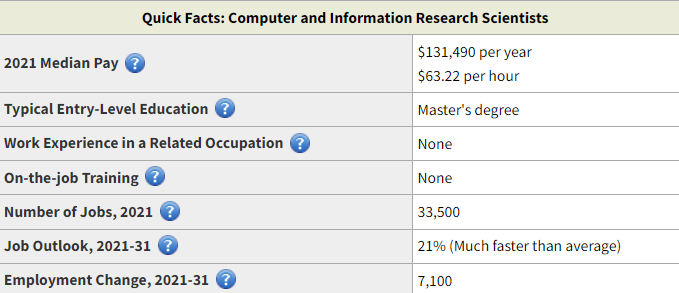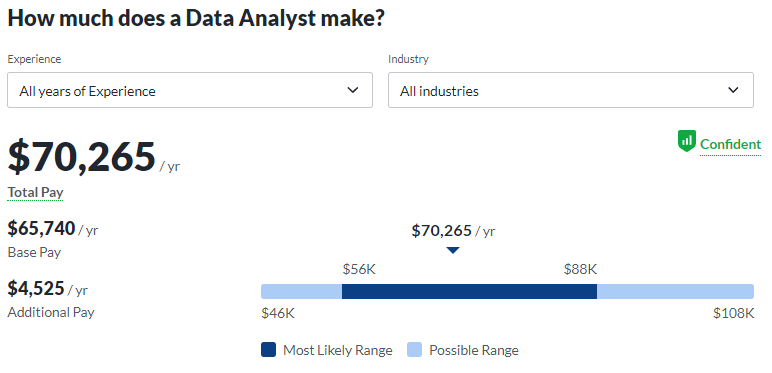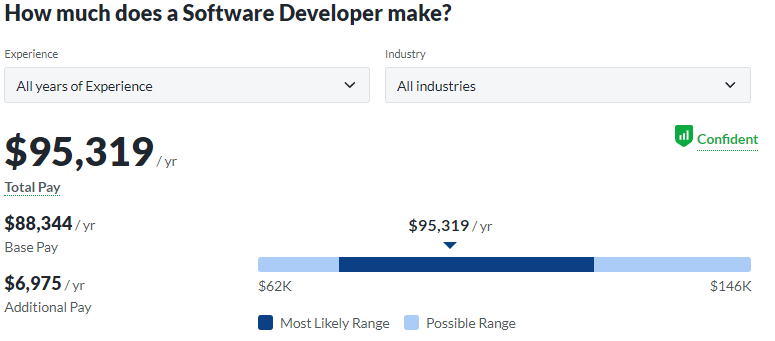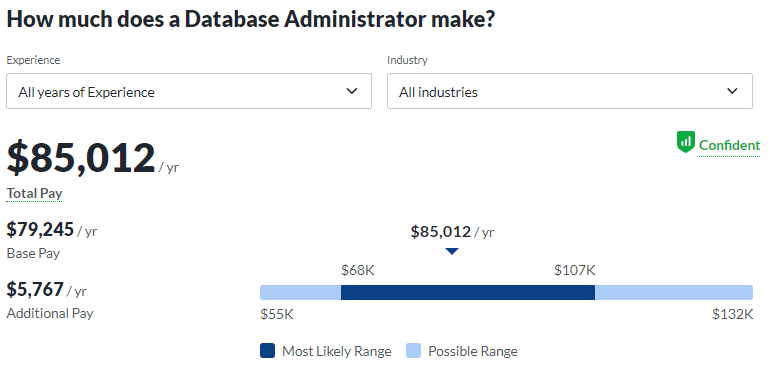Computer Science Vs. Computer Engineering: What’s Their Difference?
Ever wondered what the difference is between computer science and computer engineering? I mean, they are all about… computers, right? In this article, we’ll go in-depth with what really is the difference between what computer engineers and computer scientists do! Computer science vs. computer engineering, here we go!
Computer Science vs. Computer Engineering Programs
A computer science degree typically focuses on the theoretical and mathematical aspects of computing and software development. It covers a wide range of topics such as programming languages, algorithms, data structures, databases, computer networks, artificial intelligence, and software development methodologies. Computer science programs often emphasize problem-solving skills, algorithm design, and the theoretical foundations of computing. Graduates with a computer science degree are typically well-equipped for careers in software development, data analysis, artificial intelligence, and research in academia or industry.

A computer engineering degree, on the other hand, combines elements of computer science with electrical engineering to focus on the design, development, and integration of computer systems and hardware. It covers topics such as digital systems design, computer architecture, embedded systems, microprocessors, hardware-software interfacing, computer networks, and computer organization. Computer engineering programs often emphasize hands-on experience with hardware design, system-level integration, and the practical implementation of computer systems. Graduates with a computer engineering degree are typically well-prepared for careers in hardware design, system integration, embedded systems, and computer architecture.
Overall, while computer science focuses on the theoretical and mathematical aspects of computing and software development, computer engineering combines elements of computer science with electrical engineering to focus on the design, development, and integration of computer systems and hardware. Computer science graduates are typically well-equipped for careers in software development and research, while computer engineering graduates are typically well-prepared for careers in hardware design, system integration, and computer architecture.
Computer Engineering vs Computer Science: Necessary Skills and Education Paths
Computer engineering is a specialized field that requires a combination of technical skills and knowledge in computer hardware and software systems. Some of the necessary skills and education paths for a career in computer engineering may include:
- Strong foundation in mathematics and physics: Computer engineering involves the design and development of complex hardware and software systems and a solid understanding of mathematical and physical concepts is essential for tasks such as circuit design, signal processing, and system optimization.
- Proficiency in programming and software development: Computer engineers often work with programming languages such as C++, Java, Python, or Verilog/VHDL for embedded systems design, firmware development, and software-hardware integration. Knowledge of software development principles, algorithms, and data structures is also important.
- Knowledge of computer architecture and digital logic: Computer engineers need to understand how computer systems are designed, including concepts such as microprocessors, memory hierarchies, I/O interfaces, and digital logic circuits. This knowledge is crucial for designing and optimizing computer hardware systems.
- Familiarity with electronic circuits and hardware design: Computer engineers work with electronic circuits, including analog and digital circuits, and need to understand concepts such as PCB design, electronic components, and circuit simulation tools. Knowledge of tools like CAD (Computer-Aided Design) software, circuit simulation tools, and PCB design tools may be necessary.
- Strong problem-solving and analytical skills: Computer engineers need to be able to analyze complex problems related to hardware and software systems and come up with creative solutions. Strong problem-solving skills, critical thinking abilities, and analytical skills are essential for identifying and resolving technical issues.
Education paths for computer engineering typically involve a Bachelor’s degree in computer engineering or a related field, although higher-level positions may require a Master’s or Ph.D. degree. Some universities and institutions also offer specialized computer engineering programs or concentrations within electrical engineering programs. Additionally, obtaining relevant certifications, such as those offered by professional organizations like IEEE or CompTIA, can also be beneficial for enhancing skills and job prospects in the field of computer engineering. Continuous learning and staying updated with the latest advancements in computer engineering technologies and trends are also essential for a successful career in this field.

Computer science, on the other hand, is a field that encompasses a wide range of skills and knowledge. Some of the necessary skills for computer science may include:
- Programming skills: Computer scientists need to have a strong foundation in programming, including proficiency in one or more programming languages such as Java, Python, C++, or JavaScript. They should also be skilled in algorithm design and data structures, as well as software development methodologies.
- Problem-solving skills: Computer scientists are often tasked with solving complex problems related to software development, system design, data analysis, and more. Strong problem-solving skills, including analytical and critical thinking abilities, are essential in this field.
- Mathematics and statistical skills: Computer science involves a significant amount of mathematics and statistics, including discrete mathematics, linear algebra, probability theory, and statistical analysis. Having a solid understanding of these mathematical concepts is important for many areas of computer science, such as machine learning, data science, and cryptography.
- Communication and collaboration skills: Computer scientists often work in teams and need to effectively communicate their ideas, solutions, and findings to colleagues, clients, and stakeholders. Strong verbal and written communication skills, as well as the ability to work collaboratively, are crucial for success in the field.
In terms of education paths, most computer science positions require at least a bachelor’s degree in computer science or a related field. However, some positions may require a master’s or Ph.D. in computer science, particularly for roles in research, academia, or specialized areas of computer science such as artificial intelligence, cybersecurity, or data science. Additionally, obtaining relevant certifications, attending workshops or boot camps, and gaining practical experience through internships or personal projects can also be beneficial for building the necessary skills and advancing in a computer science career.
Can I Get a Computer Science Job With a Computer Engineering Degree and Vice Versa?
It is possible to get a computer science job with a computer engineering degree, and vice versa, as there is often an overlap between the two fields. Computer science and computer engineering are closely related disciplines, and many of the skills and knowledge acquired in one field can be transferable to the other.
Computer engineering focuses on the design and development of computer hardware and systems, including microprocessors, circuit design, embedded systems, and computer architecture. However, computer engineering programs often also cover topics related to computer software, such as programming, data structures, and algorithms. This means that computer engineering graduates may be well-equipped to pursue jobs in computer science fields that involve hardware design, embedded systems, or low-level programming, among others.
On the other hand, computer science encompasses a broader range of topics, including software development, algorithms, data structures, artificial intelligence, computer networks, and cybersecurity, among others. Computer science graduates often possess strong programming skills, problem-solving abilities, and a solid understanding of software development principles, which can make them competitive candidates for computer engineering jobs that involve software development, systems programming, or network design.
However, it’s important to note that some computer science jobs may require specialized knowledge or expertise that may not be covered in a computer engineering degree, and vice versa. In such cases, additional learning or training may be required to bridge any gaps in knowledge. Additionally, the job market and specific requirements for computer science and computer engineering jobs may vary depending on location, industry, and employer preferences. Therefore, it’s crucial to research and understands the specific job requirements and qualifications for the desired career path in order to effectively position oneself for success.

Computer Science vs. Computer Engineering Job Outlook
With the rise of technological advancements and the stabilization of the internet, computer engineering professionals and computer scientists are obviously thriving in today’s world!

From 2021 to 2031, computer scientists have a 21% increase in job outlook. That’s way faster than the average career paths in today’s world.

Computer engineers also have an outstanding job outlook change percentage. Having a 25% job outlook change on its belt, that’s 4 percent higher than computer science. As stated earlier, the world’s modernization is making these 2 career paths strive!
What is Computer Science and What Does a Computer Scientist Do?
Computer science is the study of computation, algorithms, and information processing, with a focus on the design, analysis, and implementation of software systems and computing technologies. It encompasses a wide range of topics, including programming, data structures, algorithms, computer architecture, databases, artificial intelligence, computer networks, and cybersecurity, among others.
A computer scientist is a professional who specializes in the field of computer science. Computer scientists typically design, develop, and analyze software systems, algorithms, and computing technologies to solve complex problems and create innovative solutions. They may work on various aspects of computer systems, including designing and implementing software applications, developing algorithms for data processing, creating machine learning models, designing computer networks, optimizing the performance and scalability of systems, and ensuring the security and reliability of computing environments.
Computer scientists may also conduct research, develop new computing technologies, and contribute to the advancement of the field through publications, conferences, and collaborations with other experts. They work in various industries, including technology companies, research institutions, academia, government organizations, and other sectors that require expertise in computer science.
Is it worth it?

What is Computer Engineering and What Does a Computer Engineer Do?
Computer engineering focuses on the discipline within electrical engineering and computer science that focuses on the design, development, and maintenance of computer systems and networks. It involves the integration of hardware and software technologies to create efficient and reliable computer systems, including microprocessors, embedded systems, digital systems, networking systems, and communication systems.
Computer engineers are responsible for designing and implementing computer systems that meet specific requirements, optimizing performance, and ensuring system reliability and security. They may work on a wide range of applications, including computer hardware, software, firmware, networking, and cybersecurity, and may specialize in areas such as robotics, artificial intelligence, embedded systems, or digital signal processing. Computer engineering plays a critical role in advancing technology and shaping the digital world we live in today.
Here are the pros and cons of computer engineering:
Computer Engineering vs Computer Science: Career Paths
Computer Engineering has the most common professions:
Data Analyst
You’re the data detective, using your keen analytical skills to unlock valuable insights hidden within mountains of data. From crunching numbers to identify trends and patterns, you’re the Sherlock Holmes of the data world, providing actionable recommendations and helping businesses make data-driven decisions.

A very common entry job with a decent $70, 265 average annual pay.
Software Developers
You’re the coding maestro, weaving lines of code into powerful applications and software that power our digital world. From designing and implementing software solutions to debugging and testing, you’re the creative force behind the innovative software that drives businesses and individuals forward.

This job is quite technical and requires a lot of knowledge and skills to perform. $95,319 is the average annual pay for this job.
Database Administrator
As a database administrator, you’re the data whisperer who ensures that information flows seamlessly and securely within an organization’s digital ecosystem. From fine-tuning databases to safeguarding sensitive data, you’re the master of data organization and optimization, keeping the gears of the digital world spinning smoothly.

Quite a critical task and requires full attentiveness when at work. That’s the reason why $85,012 is the average annual pay for database administration/database management.
Computer Science has the most common professions:
UX Designer

UX Designers, according to Glassdoor.com, earn an average of $95,359 per year!
Mobile App Developer
You’re the app guru, overseeing the development and management of cutting-edge mobile applications that transform the way we live and work. From designing user-friendly interfaces to ensuring seamless functionality across different devices and platforms, you’re the mobile maestro who brings the world of apps to life in the palms of our hands.

$77,872 is the average annual take-home pay for mobile app developers according to Glassdoor.com.
IT Project Manager
You’re the digital conductor, orchestrating complex IT projects from inception to completion. From defining project scope and objectives to managing resources, timelines, and budgets, you’re the mastermind who ensures that IT projects are delivered successfully, on time, and within budget.

IT Project Managers, according to Glassdoor.com, earn an average of $103,065 per year! That’s a pretty big bag to take home.
Trends in Computer Science
Computer science is a dynamic and ever-evolving field that continually experiences new trends and developments. Some of the current trends in computer science include artificial intelligence (AI) and machine learning, cybersecurity, quantum computing, big data and analytics, cloud computing, edge computing, the Internet of Things (IoT), blockchain technology, and virtual and augmented reality (VR/AR).
Artificial intelligence and machine learning are rapidly advancing, with applications in various industries, such as healthcare, finance, and transportation. Cybersecurity is becoming increasingly important as technology becomes more pervasive and cyber threats more sophisticated. Quantum computing promises to revolutionize computing power and solve complex problems that are currently infeasible for classical computers. Big data and analytics continue to shape decision-making processes across sectors, while cloud computing and edge computing enable greater flexibility and scalability in computing resources.
The Internet of Things (IoT) is expanding with the proliferation of connected devices, creating new applications and service opportunities. Blockchain technology is gaining traction in areas such as finance, supply chain management, and digital identity verification. Finally, virtual and augmented reality are transforming industries such as gaming, entertainment, and education by offering immersive and interactive experiences. Overall, these trends reflect the rapid pace of technological advancements and their impact on various aspects of society and the economy.
Trends in Computer Engineering
Computer engineering is an ever-evolving field that is constantly changing with the advancement of technology. One of the most significant trends in computer engineering is the rise of Artificial Intelligence (AI) and Machine Learning (ML). These technologies are used in various applications such as self-driving cars, intelligent personal assistants, and image recognition systems, among others. With the massive amounts of data generated every day, AI and ML are increasingly becoming an essential part of computer engineering. The trend toward automation is only going to increase, and computer engineers will continue to be at the forefront of this revolution.
Another trend in computer engineering is the Internet of Things (IoT). The IoT is a network of interconnected devices, sensors, and objects that communicate with each other to collect and exchange data. This technology has enabled various applications such as smart homes, smart cities, and wearable technology, among others. The need for IoT devices to be interconnected securely has led to the development of advanced cybersecurity solutions. Computer engineers are involved in the design, development, and implementation of these systems.
Lastly, the trend toward cloud computing has revolutionized the way businesses store, manage, and process data. Cloud computing offers a range of benefits such as scalability, cost-effectiveness, and accessibility. This has led to the development of various cloud-based applications and services such as Software-as-a-Service (SaaS), Platform-as-a-Service (PaaS), and Infrastructure-as-a-Service (IaaS). Computer engineers are involved in the design, development, and implementation of these cloud-based solutions. With the growth of cloud computing, computer engineers will continue to play a critical role in enabling businesses to leverage this technology.
Conclusion
Just like a power couple in the tech world, computer science, and computer engineering are the dynamic duo that keeps our digital world running smoothly! Computer science is like the brain, with its sharp algorithms and coding skills, while computer engineering is like the brawn, building and optimizing the hardware that powers our digital devices.
Together, they work hand in hand to drive innovation, create cutting-edge technologies, and solve complex problems in today’s ever-evolving technological landscape. So whether you’re geeking out with code or tinkering with circuits, both computer science and computer engineering are essential fields that shape the world we live in and pave the way for an exciting future! So, let’s stop talking about computer science vs. computer engineering!
